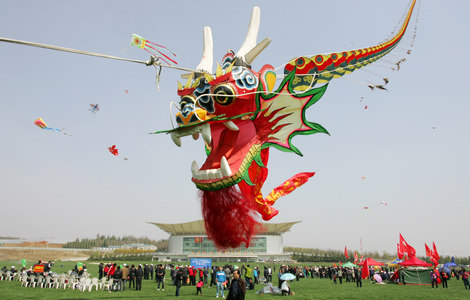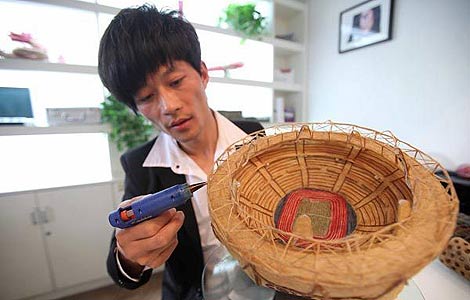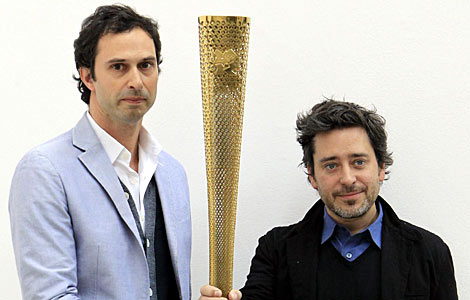 |
|
|
|
|||||||||||
Focus on growth
The people of Chongqing are also known for their passion for mah-jong, a game they play day and night in a range of places, including homes, teahouses, community mah-jong houses and, for those yearning for fresh air during the hours-long mah-jong sessions, cruise ships.
At Chaotianmen, near the spot where the Jialing River flows into the main stream of the Yangtze River, people sit four to a table and play mah-jong on a cruise ship docked at the port. The entire second-floor deck of the ship has been converted into an open-air mah-jong house with scores of tables arranged in neat rows. The clash of mah-jong tilts is so loud that people on the shore can hear the clamor.
Locals said Chaotianmen is where an adolescent Deng Xiaoping bid farewell to his hometown in Sichuan province and boarded a ferry to Shanghai before moving on to France to study. Deng, with a proud ambition to save the country from chaos, discovered Communism in France and came back to join the Chinese revolution led by Mao Zedong that eventually overthrew the Kuomintang government in 1949.
Deng was instrumental in unleashing market economy reforms in China more than three decades ago.
Viewing from Chaotianmen, skyscrapers have emerged on the mountain slopes along the channels of the Yangtze and Jialing rivers, and an arched bridge styled after, but built to be longer than, the Sydney Harbour Bridge spans the Yangtze, connecting Chongqing's upscale business districts.
Chongqing, once a center of political, economic and cultural resources as the Kuomintang's war-time capital during World War II, only made strides in development after it was designated a municipality directly under the central government alongside Beijing, Shanghai and Tianjin in 1997 and the central government launched a major campaign -- "Develop the West" -- to support the development of the country's western regions in 2000.
Chongqing's economic output exceeded 1 trillion yuan ($160 billion) in 2011, becoming the first inland city with such a massive economy. Another six Chinese cities with GDPs over 1 trillion yuan are all located on or near the coast, the area that has led the country's export-oriented economic boom over the past three decades.
Li Youcai, a government official of rural Zhongxian county, said right after he was summoned, like others, to a county-level Party committee meeting to be briefed on the decision to investigate cases surrounding Bo, he was asked to resume focusing on his priority work -- attracting investors.
Li, 31, said the county government is in talks with a major Chinese solar panel maker to set up a plant in Zhongxian, which is estimated to involve an investment of 3 billion yuan.
"Bo's case did not affect our work, especially not the opening-up policies the county government has adopted," Li said. "We are still primarily focused on seeking investment to boost the local economy."
Investor confidence
"The development of Chongqing will continue. The 'Go West' policy is bigger than Bo. Foreign businesses that have invested in the mega-metropolis have no reason to fear for their commitment," said Jonathan Fenby, managing director of Trusted Sources, said in an analytical piece posted on the UK-based research and consulting firm's website.
In April, Vice-Premier Zhang told visiting Prince Alwaleed Bin Talal Alsaud, chairman of Saudi Arabian Basic Industry Company, that Chongqing is in a critical phase of development, and the municipal government will continue promoting its economic opening-up policies and improving the business environment to attract foreign investment.
Late last week, Chongqing held a high-level hi-tech fair with the participation of 2,100 businesses, government agencies and research institutions from across China and more than 30 foreign countries. Chongqing inked cooperation agreements with foreign partners on smart grids, green materials, clean coal and industrial robots, among others, the organizers said.
Steffen Zietzschman, CEO of German electronics maker SAW Components, said he was seeking customers for the company's advanced passive wireless sensors that are able to work in harsh environments.
He said he believes there are good opportunities in Chongqing as it has a high concentration of hi-tech industries.
Asked whether the death of Neil Heywood would dampen investor confidence, Zietzschman said he is concerned about the case but considers it an isolated incident.
"It is very dramatic. I cannot understand how it happened. But I don't think the case will affect the overall business environment. Let's see. Maybe after one year, no one would talk about it any more," he told Xinhua.
Professor Xie Chuntao said that people in and out of China are all so confident in the country's overall stability and sound growth that no one would believe Bo's case could shake this confidence.

|

|

|

|

|

|